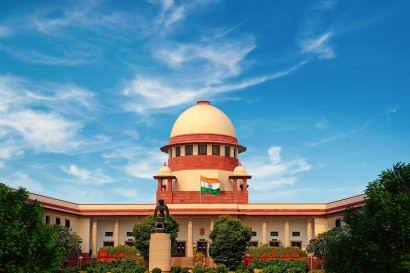February 26, 2025 – The Centre has firmly opposed a plea in the Supreme Court seeking a lifetime ban on convicted politicians, arguing that such a disqualification falls solely within the domain of Parliament.
Judicial Review Cannot Override Legislative Policy
In an affidavit filed before the apex court, the Centre asserted that directing Parliament to frame a law in a particular manner would amount to rewriting the statute, which is beyond the scope of judicial review. The affidavit stated, “The question of whether a lifetime ban is appropriate or not is solely within the domain of Parliament.”
The government emphasized that penalties are typically confined to a specific time frame to ensure deterrence while avoiding undue harshness. It argued that limiting the period of disqualification under Section 8(1) of the Representation of the People Act, 1951, is a matter of legislative policy. Currently, the law mandates a six-year disqualification period from the date of conviction or, in case of imprisonment, six years from the date of release.
Petitioner Seeks Permanent Ban
The plea, filed by advocate Ashwini Kumar Upadhyay, calls for a lifetime ban on convicted politicians and expedited trials for criminal cases involving lawmakers. However, the Centre contended that the petitioner’s request essentially sought to replace the statutory “six-year” ban with a “life-long” disqualification, which is beyond the court’s power.
“The Constitution grants Parliament the authority to determine both the grounds and duration of disqualification. While a lifetime ban is possible, it is for Parliament to decide whether to impose it in every case,” the affidavit stated.
Proportionality and Reasonability in Law
The Centre further argued that disqualification laws, including those in the Bharatiya Nyaya Sanhita, 2023, align with principles of proportionality and reasonability. Many penal laws impose restrictions on rights for a specific duration rather than permanently.
Additionally, the government refuted the petitioner’s reliance on Articles 102 and 191 of the Constitution, which govern disqualification criteria for MPs and MLAs. It clarified that these provisions empower Parliament to enact laws on disqualification rather than impose a mandatory lifetime ban.
Supreme Court Seeks Response from Centre, Election Commission
On February 10, the Supreme Court sought responses from the Centre and the Election Commission regarding the constitutional validity of Sections 8 and 9 of the Representation of the People Act, 1951. While the case remains under review, the government maintains that any changes to disqualification laws must be made through Parliament, not judicial intervention.

